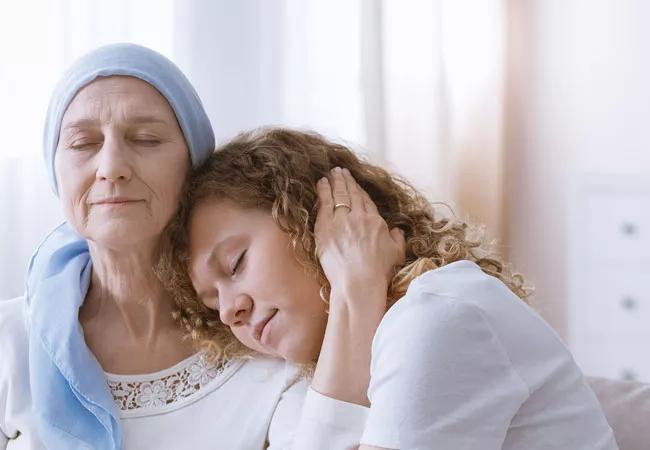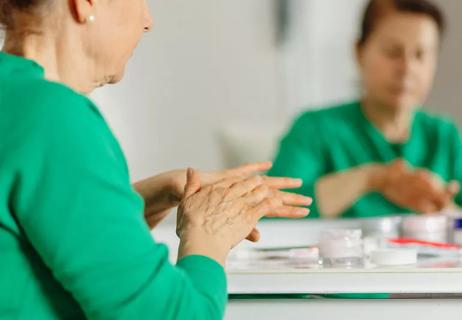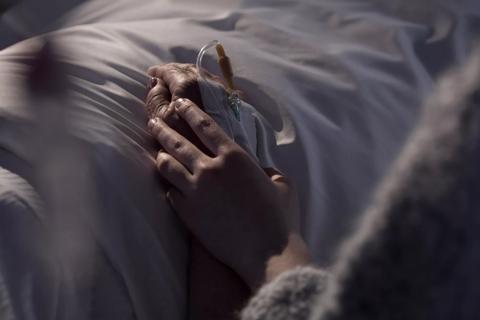How to figure out what's right for you and when

At first glance, the idea of stopping cancer treatment might seem strange. Why wouldn’t you want doctors to use every tool at their disposal to beat this deadly disease? But decisions about cancer treatment aren’t always that simple — or easy, says psychosocial oncologist Joel Marcus, PsyD.
Advertisement
Cleveland Clinic is a non-profit academic medical center. Advertising on our site helps support our mission. We do not endorse non-Cleveland Clinic products or services. Policy
Here are some things to consider if you or a loved find yourselves facing this challenging and complex decision.
“Generally there’s a tipping point, where physical, emotional or psychosocial symptoms become unmanageable,” explains Dr. Marcus.
Cancer treatment is difficult and draining, and can cause a variety of unpleasant side effects. Patients with cancer sometimes get tired of feeling sick, feeling fatigued and/or living with pain.
“With the cumulative effects of treatment, they may become depressed or anxious as they contemplate the next round of chemotherapy,” he says.
“Also, a great majority of patients feel like a burden to family members who shuttle them to and from appointments.”
Weighed in the balance, treatment may no longer seem worthwhile — and the person may decide to shift their focus to enjoying the time they have left, instead.
Start by having an honest conversations with your care team, advises Dr. Marcus. “Your opinion about continuing treatment will be very different, depending on whether it will bring a high likelihood of remission, or will add only a few months or weeks to your life.”
Before making a decision, he encourages you to explore all your treatment options — and the likely outcome of each one — with your doctors.
Advertisement
Cancer treatments are advancing all the time. For example, immunotherapy has radically changed the outcomes for some types of cancers.
Some patients may also opt for clinical trials that offer access to experimental, potentially effective, treatments. “Every currently useful cancer treatment went through the clinical trials process,” notes Dr. Marcus.
But each person has to think carefully and decide, on their own terms, whether such options are worth pursuing. “Really, it all boils down to one question: What’s important to you?” says Dr. Marcus.
Understanding what really matters to you will help guide your decision about whether to stop treatment and start hospice.
“For example, one patient had lost some mobility but still wanted to spend quality time with his family, like sitting and enjoying a sunset with his wife,” he says.
In this way, patients and families should be both realistic — and specific — about goals.
The best way to navigate circumstance like these is to start having conversations with your loved one before either of you become ill.
“I encourage everyone to fill out health care power of attorney and living wills, and to have that discussion with family members,” Dr. Marcus says.
“You’re talking about questions, such as ‘What’s important to me? Do I want doctors to use invasive measures to keep me alive? Am I OK with being kept alive on machines, with living on a ventilator?’ ”
These conversations are not easy. But thinking things through carefully — and being clear about what’s important to you and your family as you face end-of-life decisions — will make a challenging time easier for everyone.
Advertisement

Sign up for our Health Essentials emails for expert guidance on nutrition, fitness, sleep, skin care and more.
Learn more about our editorial process.
Advertisement

Chemo cold caps may help you keep more of your hair during therapy

Practice meditation together, make a unique-to-them care package and embrace emotions

From a thoughtful note to a special pillow, these items are a win

How to create your own organizational system

Take these steps to limit the damage

The short answer from an exercise physiologist

The short answer from an oncologist

10 things that can help ease your mind and keep you comfortable

Even small moments of time outdoors can help reduce stress, boost mood and restore a sense of calm

A correct prescription helps your eyes see clearly — but as natural changes occur, you may need stronger or different eyeglasses

Both are medical emergencies, but they are very distinct events with different causes